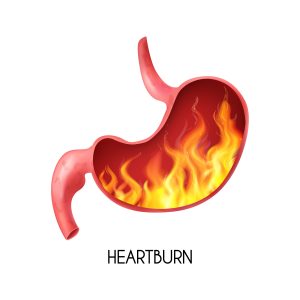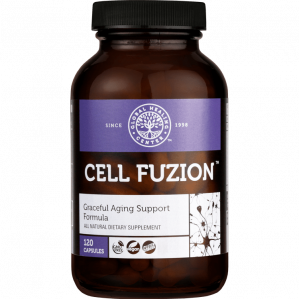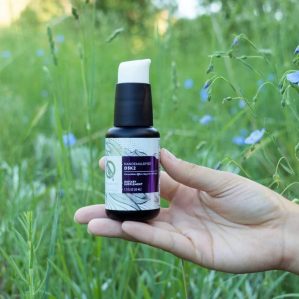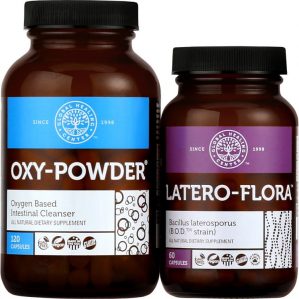What You Need to Know About Heartburn – The 6 Top Essential Oils for Heartburn
Essential Oils for Heartburn: What You Need to Know
Overview
Heartburn is a painfully familiar situation characterized by a sharp burning sensation in the chest and upper abdomen. It is most commonly
Many people experience heartburn, usually after overeating, eating spicy or acidic foods, or eating close to bedtime. But it is especially frequent in pregnant women and people with gastrointestinal reflux disease. Certain foods like chocolate, citrus fruits, coffee, alcohol, tomatoes, and peppermint are some of the well-known triggers. Long-term use of blood pressure medications and some over-the-counter painkillers (like ibuprofen and aspirin) are also known to cause frequent heartburn.
Heartburn is not a serious health problem and usually subsides on its own in a few hours. However, it can be uncomfortable and disruptive to your daily routine. Especially during pregnancy, when your digestion is naturally slow and delicate, having frequent heartburn can significantly lower your quality of life.
Essential oils have been used since antiquities for relieving heartburn and digestive distress. Evidence suggests that volatile compounds from certain medicinal plants can help speed up the digestion process and soothe the esophagus lining. Read on to find out the best essential oils for heartburn and how to use them for fast relief.
The top essential oils for heartburn
1. Ginger oil
Derived from the fragrant culinary rhizomes, ginger oil has been used for centuries as a natural remedy for various digestive issues, including heartburn. It contains gingerol, a compound well-researched for its anti-inflammatory and anti-spasmodic properties.
When inhaled after meals or absorbed through topical abdominal massage, gingerol soothes inflammation of the esophagus and energizes gastrointestinal muscles. Its empowering aroma has been proven to boost gut motility and increase the production of digestive enzymes, which can help promote digestion after a heavy meal and prevent heartburn.
A 2015 study on rats suggested that ginger oil has gastroprotective properties that can improve gut health and reduce the risk of stomach ulcers. In another 2020 trial, researchers found that applying diluted ginger oil on the abdomen twice a day for 30 days helped ease discomfort in constipated individuals and improved bowel movements.
2. Citrus essential oils
Citrus peel oils like bitter orange, bergamot, lemon, grapefruit, and tangerine are rich in d-limonene, a powerful medicinal compound known for its digestive, carminative, soothing, immune-boosting, and anti-cancer properties.
Studies have shown that d-limonene can balance excess stomach acidity, alleviate inflammation and spasms, accelerate the movement of food through the digestive tract, and improve gastric emptying time. D-limonene is commonly available as a natural health supplement to promote digestive wellness and is also used to support cancer recovery.
The compound mainly comes from citrus peels and is widely recognized as a natural remedy for the long-term management of diabetic gastroparesis, IBS, heartburn, acid reflux, and GERD. Among citrus oils, bitter orange contains the highest amount of d-limonene, comprising about 95% of this compound.
3. Turmeric essential oil
Another member of the wondrous ginger family, turmeric has been employed since time immemorial to soothe a wide range of digestive problems, including heartburn, acid reflux, bloating, abdominal pain, flatulence, constipation, and diarrhea.
Studies have shown that monoterpenes and curcuminoids found in turmeric oil can reduce esophageal inflammation, maintain optimal strength of digestive juices, and facilitate the digestion process. In Ayurvedic healing, turmeric has been indicated as a natural remedy for GERD and stomach ulcers.
Researchers have identified over 88 therapeutic compounds in turmeric oil, which have been shown to exhibit antioxidant and antibacterial properties. In animal studies, these compounds have been shown to improve gut microbiome by inhibiting the growth of opportunistic microbes. It has also been found effective in alleviating stomach infections.
4. Lavender oil
Lavender is one of the most popular essential oils for heartburn and digestive issues. It contains compounds like linalool and linalyl acetate, which have been well-researched for their potent anti-inflammatory and digestive effects.
Evidence suggests that when massaged on a full stomach or inhaled after large meals, lavender facilitates smooth movement of intestinal muscles and improves gut motility. Its calming and mood-balancing properties help soothe the nervous system and reduce anxiety. Since the brain and gut are closely interlinked through the vagus nerve, it has a profound effect on overall digestive health.
Studies have found that inhaling lavender aroma during or after meals can prevent indigestion, heartburn, bloating, pain, and hyperacidity. It is also known to promote regular bowel movements and improve conditions like chronic dyspepsia or irritable bowel syndrome.
5. Fennel seed oil
Fennel seed oil has long been used in traditional remedies for soothing minor tummy troubles, as well as for improving chronic digestive conditions. Famed for its refreshingly sweet, spicy, licorice-like nuanced aroma, fennel oil is preferred for its ability to provide quick relief within minutes.
Its volatile compounds can quickly reach the food pipe and reduce inflammation at the site, alleviating symptoms like chest pain and burning sensation. Fennel oil is rich in phenols and flavonoids that are well-researched for their gut health benefits.
It can also help stimulate the immune response against stomach infections and promote gut detoxification. Research suggests that fennel oil can improve inflammatory bowel conditions like ulcerative colitis, Crohn’s disease, and IBS.
6. Peppermint oil
Peppermint essential oil is renowned for its cooling and pain-relieving effects, making it a popular choice for soothing heartburn and cramps. It contains menthol, which can help relax gastrointestinal muscles and improve blood flow, releasing pressure on the stomach. It also helps reduce hyperacidity, bloating, and heaviness after a large meal.
However, peppermint may not work equally for everyone. In some people, its cooling effect can cause the lower esophageal sphincter to relax abnormally. This can worsen the symptoms of acid reflux. Peppermint is also known to interact with some medications, and it is best to speak with an expert before using it for therapeutic purposes.
How to use essential oils for heartburn
Aromatherapy: Put 3-4 drops of a synergistic blend in home diffusers.
Massage: Add 4-5 drops in 15 ml of extra virgin olive or coconut oil. Gently massage the abdominal area in a clockwise motion (in the direction of the large intestine) for 3-5 minutes. Make sure not to apply too much pressure.
Essential oil recipes for heartburn relief and digestion support
You can also make ready-to-use roller blends for quick application. For this, you will need about 6 drops of essential oil, 10 ml of carrier oil (preferably light and deep-penetrating oils like jojoba or grapeseed), and an amber-colored glass roller bottle.
Essential oils are synergistic and work best in combination with each other. Here are some recipe ideas that you can try for making roller blends.
- Spicy/herbaceous
- 2 drops ginger oil
- 2 drops fennel seed oil
- 2 drops marjoram oil
- Citrus/herbaceous
- 2 drops bitter orange oil
- 2 drops bergamot
- 2 drops lemongrass
- Fruity/herbaceous
- 2 drops sweet orange
- 2 drops lavender
- 2 drops marjoram
- Earthy/warm
- 2 drops turmeric
- 2 drops ginger
- 2 drops tangerine
- Sweet/green
- 2 drops cardamon
- 2 drops lavender
- 2 drops coriander leaf oil
- Minty/fresh/clean
- 2 drops peppermint
- 2 drops rosemary
- 2 drops lemon
- Floral/sweet/woodsy
- 2 drops chamomile
- 2 drops geranium
- 2 drops juniper berry
Potential side effects and safe practices
Essential oils are generally considered safe for external application and aromatherapy uses. However, always remember to dilute them with carrier oils and never exceed the recommended doses. Although they come from natural sources, essential oils can be potential irritants when used in improper ways.
Inhaling them in higher concentrations or for long hours may trigger side effects like headaches, drowsiness, vomiting, nausea, cough, or respiratory allergies. Diffuse them in well-ventilated rooms and limit your exposure to no more than 35-40 minutes at a time.
When diluting essential oils for topical application, always keep the concentration below 4-5%. Higher doses have been known to cause skin irritations, burns, rashes, blisters, redness, and breakouts.
Cold-pressed citrus oils are photosensitive and can increase the risk of sunburn and UV damage. Avoid sun exposure for at least 12 hours after topical application.
Final thoughts
Heartburn is a common digestive problem that can significantly affect your mood and productivity. Its frequent occurrence should not be ignored if you are pregnant or living with type-2 diabetes.
Essential oils are safe and time-honored remedies for soothing digestive distress like heartburn and acid reflux. Evidence suggests that these powerful anti-inflammatory agents can help reduce esophagus irritation, accelerate gastric emptying, improve gut motility, and provide quick relief from pain and burning sensation.
Being potent herbal extracts, essential oils should always be used with utmost care and awareness. In some cases, they may cause unpleasant side effects. When using an oil for the first time, consider performing a patch test. Also, make sure to buy high-quality, toxin-free oils from a trusted supplier, as some brands may contain harsh chemicals and additives.
For natural and healing remedies, products, and supplements that can help you live your most optimal healthy life, visit our store here!
To Your Health!
References
https://archives.palarch.nl/index.php/jae/article/view/1439
https://www.ncbi.nlm.nih.gov/pmc/articles/PMC6341159/
https://pubmed.ncbi.nlm.nih.gov/24756059/
https://pubmed.ncbi.nlm.nih.gov/18072821/
https://www.redalyc.org/journal/1816/181661081006/html/
https://www.ncbi.nlm.nih.gov/pmc/articles/PMC4137549/
https://www.frontiersin.org/articles/10.3389/fphar.2021.674095/full
https://www.ncbi.nlm.nih.gov/pmc/articles/PMC3195121/
https://www.ncbi.nlm.nih.gov/pmc/articles/PMC5429743/
https://www.nccih.nih.gov/health/peppermint-oil
https://www.researchgate.net/publication/237842903_A_REVIEW_ON_PEPPERMINT_OIL
Featured Image Credit:Image by Freepik; Image by brgfx on Freepik





























0 Comment